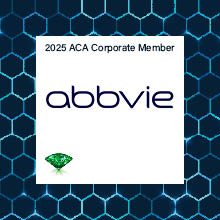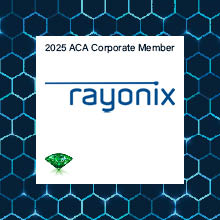Effective In-Person Advocacy Tips
Effective communication with your political representatives starts with preparation. This simple guide outlines best practices to help you engage with them successfully.
✅ Know Your Audience
Research the lawmakers you’ll be meeting with. Understand their political affiliation, committee assignments, and any specific interests in science or research funding. Check their biographies and official websites to gain insights.
✅ Align Your Message with Their Priorities
Politics is local, and legislators are accountable to their constituents. Frame your advocacy in terms of how it impacts their district or state.
✅ Have a Clear and Specific Ask
Before the meeting, define your key request. Do you want them to support a specific bill, increase funding, or take another action? Be clear and direct about what you're asking them to do.
✅ Use Personal Stories and Local Data
Lawmakers respond to real-world impact. If you can, share a personal story or data that highlights how the issue affects their district, constituents, or broader community.
✅ Communicate Clearly and Concisely
Legislators and their staff are well-informed generalists. While staffers may have expertise in health or science, their responsibilities cover multiple issues. Tailor your explanation to their level of familiarity.
✅ Be Prepared for Pushback
Anticipate questions or objections and be ready with thoughtful responses. If they raise concerns, acknowledge them and pivot back to your key message.
✅ Present Yourself Professionally
Maintain a respectful and professional demeanor. Address lawmakers and staff appropriately, dress in business attire, and wear comfortable shoes.
✅ Capture the Moment
Take photos with lawmakers and document advocacy activities to share your efforts with your community.
✅ Stay Positive
Emphasize how research drives progress and innovation. A hopeful, constructive message is more compelling.
✅ Know the Legislative Timeline
Timing matters. If a bill is in committee or an appropriations deadline is approaching, lawmakers may be more receptive to action. Do some research on where your issue stands in the legislative process.
✅ Build Long-Term Relationships
Advocacy isn’t just about a single meeting. Stay in touch with their office, provide helpful updates, and engage with them on social media or at events.
✅ Follow Up
Always send a thank-you note after your meeting.
When advocating, avoid these common pitfalls:
-
Suggesting funding cuts elsewhere. Recommending cuts to other programs can be counterproductive.
-
Overlooking congressional staff. They are knowledgeable, influential, and play a key role in shaping decisions.
-
Bringing partisanship into the conversation. Science should remain nonpartisan to gain the broadest support.
-
Using a negative or dismissive tone. Stay constructive—don’t dominate discussions, patronize, or complain. Respectful, solution-focused advocacy is far more effective.
|




















